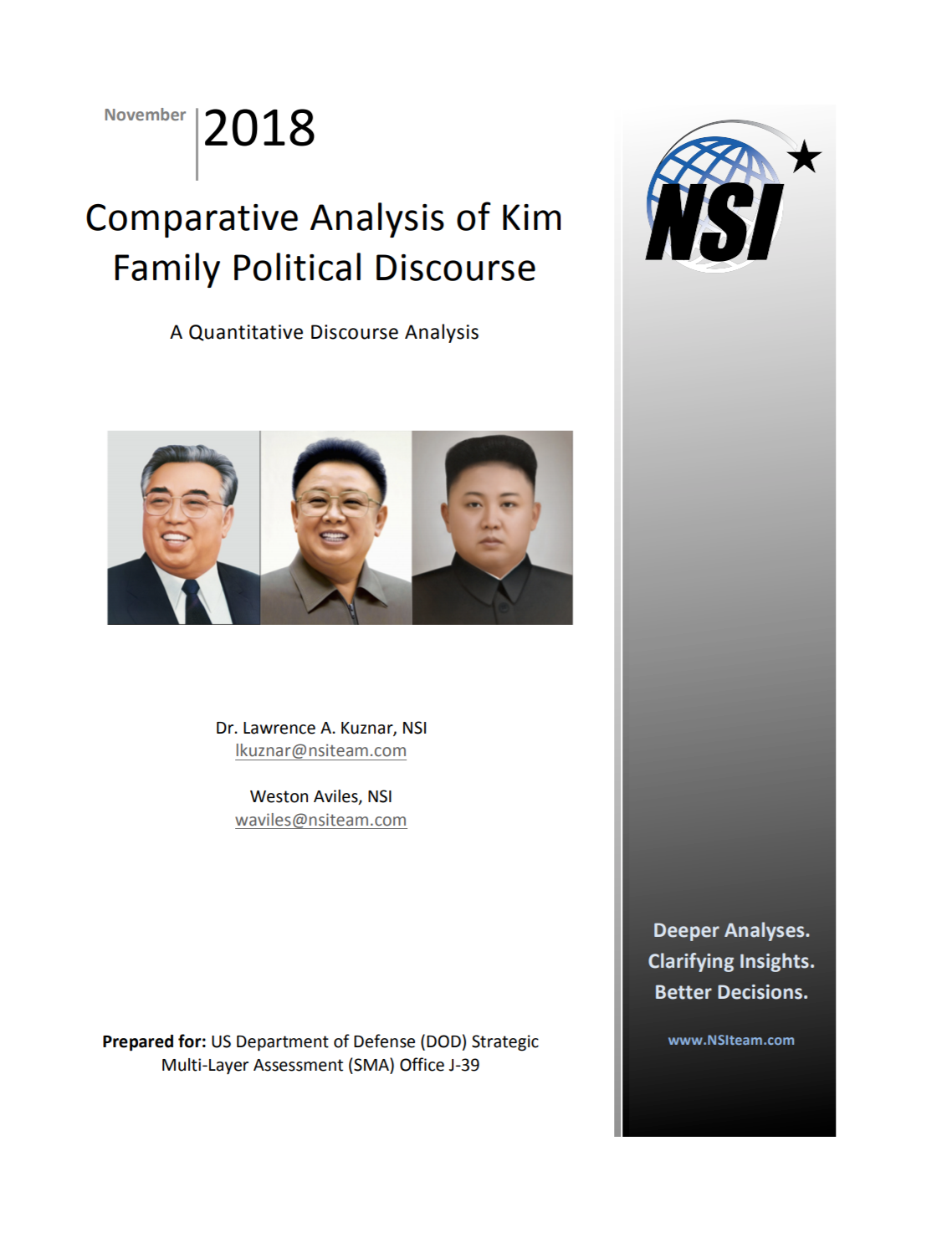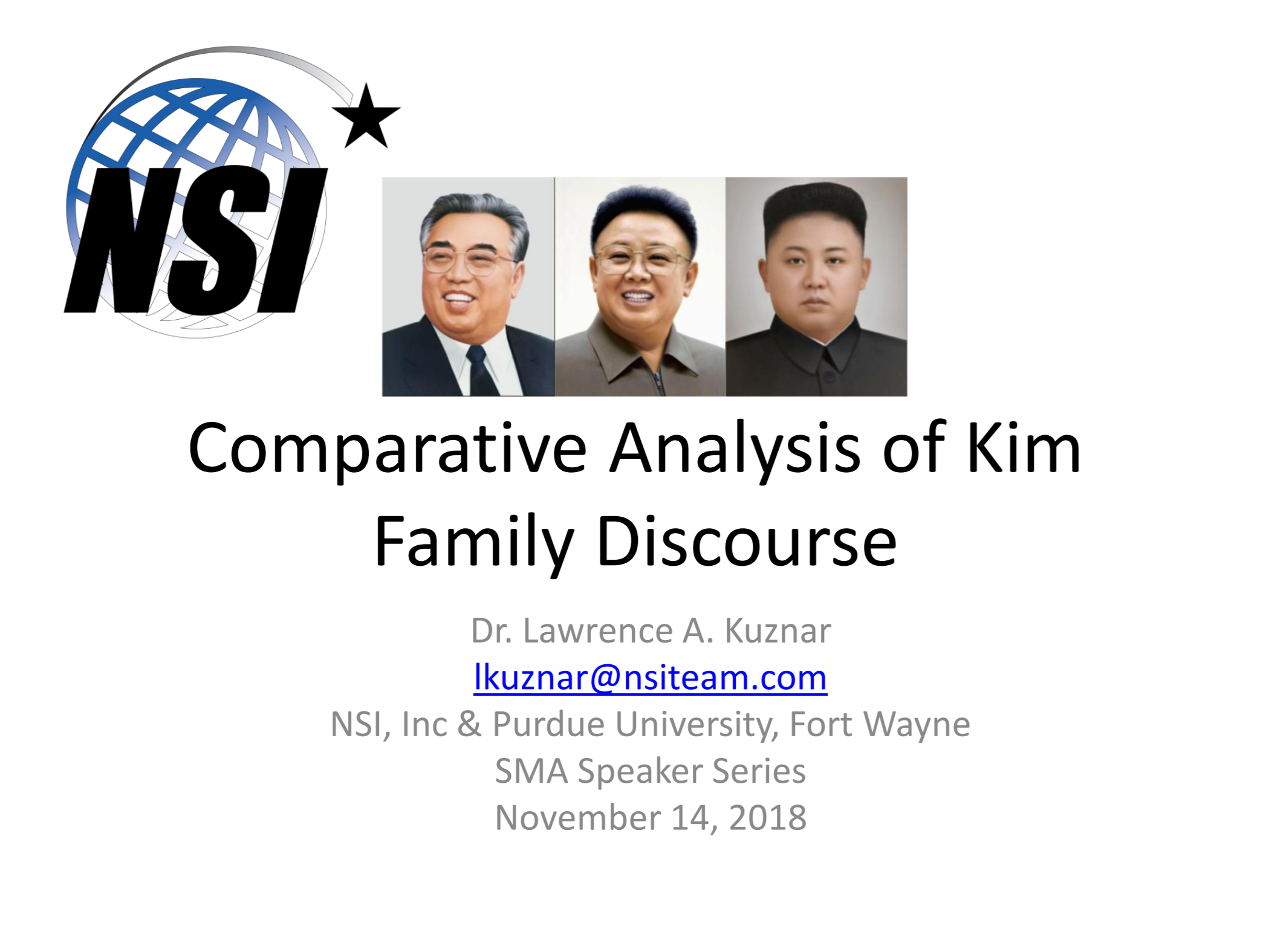Comparative Analysis of Kim Family Discourse
“Comparative Analysis of Kim Family Discourse”
SMA hosted a speaker session with Dr. Larry Kuznar (NSI, Inc. / Purdue University- Fort Wayne) as part of its SMA INDOPACOM Speaker Series. This speaker session supported SMA’s Korea Strategic Outcomes project. For additional speaker sessions and project publications, please visit the Korea Strategic Outcomes project page.
Date: 14 November 2018
Speaker Session Preview
SMA hosted a speaker session presented by Dr. Larry Kuznar (NSI, Inc. / Purdue University- Fort Wayne) as a part of its SMA Korea Strategic Outcomes Speaker Series. For his study, Dr. Kuznar and his team conducted a comparative analysis of the three Kim family leaders to determine whether Kim Jong-un differs from previous leaders in meaningful ways and whether things are likely to change based on his behavioral patterns. Dr. Kuznar then briefly discussed North Korea’s cultural and political background, highlighting the main elements underlying Juche philosophy and explaining the Songbun caste system. He reviewed NSI’s approach to discourse analysis and explained the reasoning behind the historical time period divisions of each leader’s corpus. Next, he highlighted the political and quasi-religious themes that remained prevalent in Kim family discourse and concepts that decreased in prevalence. He also specified the changes in Kim Jong-un’s rhetoric over time and identified who the Kims talk about, the emotive themes expressed by the Kims, and the rhetorical devices they deploy. Dr. Kuznar concluded his presentation by pinpointing when themes changed in Kim discourse (particularly during transitions between leaders) and reviewing his key takeaways.
This speaker session supported SMA’s Korea Strategic Outcomes project. For additional speaker sessions and project publications, please visit the Korea Strategic Outcomes project page.
Speaker Session Recording
Briefing Materials
Biography
Dr. Lawrence Kuznar (Chief Cultural Sciences Officer NSI, Inc., and Professor of Anthropology, Purdue University- Fort Wayne) Dr. Kuznar conducts anthropological research relevant to various areas of national security. His current research focuses on discourse analysis to gain insight into the worldview and decision calculus of leaders and populations. This research identifies leading indicators and warnings of political action such as conflict or negotiation. His methodology has been applied to North Korea, Islamic State (ISIS/Da’esh), Eastern European State and non-State Actors, Iran, and polities in the Middle East and Asia. Dr. Kuznar has developed computational models of genocide in Darfur and tribal factionalism in New Guinea, mathematical models of inequality and conflict, and integrated socio-cultural databases for predicting illicit nuclear trade and bioterrorism. Dr. Kuznar’s recent research has been funded by academic sources, the Office of the Secretary of Defense Strategic Multilayer Analysis, Air Force Research Lab (AFRL), the Human Social Cultural Behavior (HSCB) modeling program of the Department of Defense, and by the US Army Corps of Engineers. He has also served on the HSCB Technical Progress Evaluation panel and a National Counterterrorism Center (NCTC) net assessment panel.
Report and slides


Comments